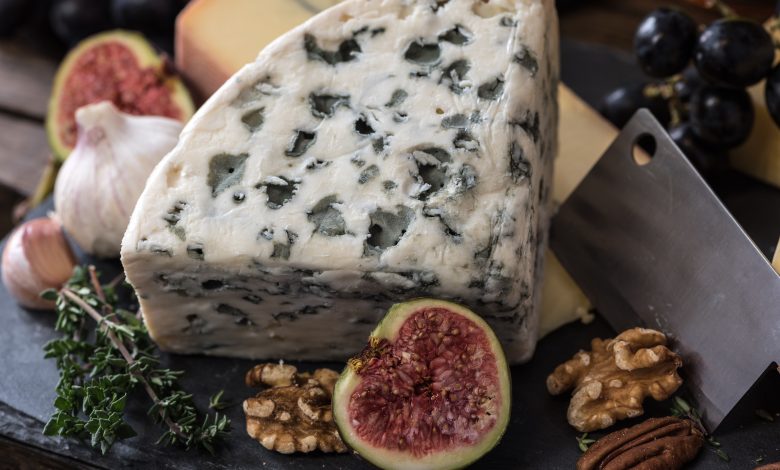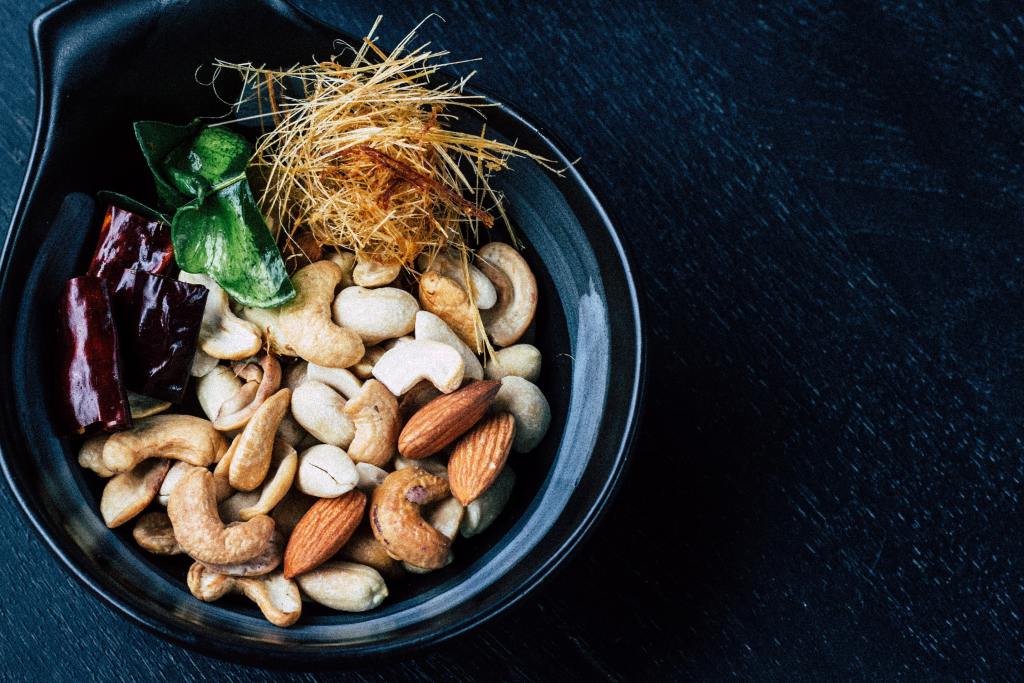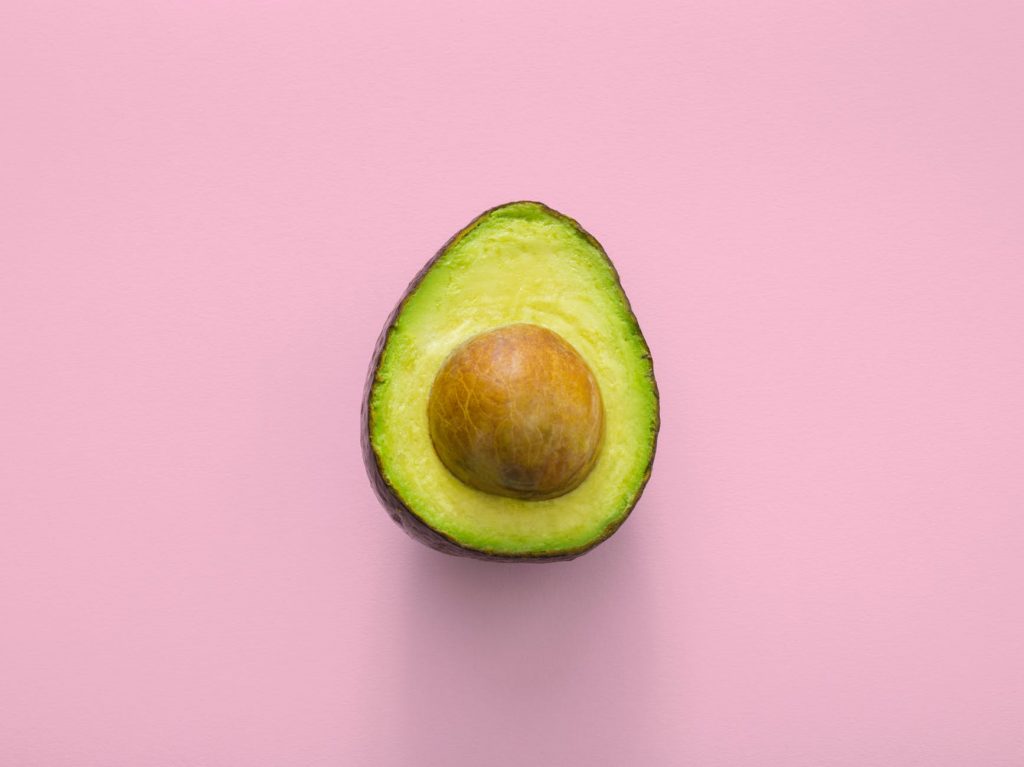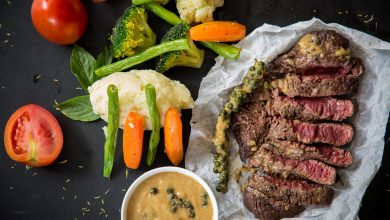
13 Foods Packed With Healthy Fat
When it comes to losing weight, fat is your number one enemy. After all, if you want to shed fat, you shouldn’t be eating it, right? But what you may not know is that your body does need fat – but just the right kind. Fat is an essential source of energy that helps you absorb vitamins and minerals. You also need fat to build cell membranes, prevent inflammation, and build muscle, among other things. For you to lose weight, you need to avoid the ‘bad’ fat and eat reasonable amounts of ‘good’ fat. Before we get into our list of 13 foods packed with healthy fat, let’s get to know dietary fat a little more.
Fat: The Good and the Bad
Years ago, we believed that all fat was wrong, but now we know better. Not all fat is equal. “Bad fats” include artificial trans fats and saturated fats. This is the type of fat you should stay away from if you are on a weight loss journey. Trans fats have a reputation of being responsible for many health problems, from high cholesterol levels to clogged arteries. On the other hand, “good fats” include omega-3 and unsaturated fats can help you control weight and stay healthy.
Another critical player in the game of weight loss is dietary fat, which has a significant effect on your cholesterol levels. One thing to remember is that cholesterol in itself is not necessarily bad. The only problem is getting too much cholesterol. There are two main types of cholesterol:
- HDL: the ‘good’ cholesterol
- LDL: the ‘bad’ cholesterol
Ideally, you should maintain high levels of HDL cholesterol and low levels of LDL. The good news is that you don’t have to count your cholesterol intake as you would with calories. Instead, focus on replacing the ‘bad’ LDL with the ‘good’ HDL.
HDL cholesterol is found in ‘good’ fats, including monosaturated and polyunsaturated fats. LDL cholesterol includes trans fats, which are found in meat and dairy products. Saturated fats are not as dangerous as trans fats but also should be consumed in moderation.
You have probably heard about omega-3 fatty acids and how they offer a wide range of health benefits. Omega-3s are among the best HDL fats that are found in fish and algae.
13 Foods Packed with Healthy Fat
Now that we know more about our enemy, we need to know how to replace the bad with the good. Here are 13 foods you need to add to your diet to get healthy levels of the good fat and lower your LDL levels.

Nuts
According to research, nuts are excellent sources of monounsaturated fat, omega-6, and omega-3 polyunsaturated fat. Also, nuts are packed with several healthy vitamins and minerals, such as vitamin E and magnesium. If you are on a diet, nuts are a safe snack that will keep you satisfied while providing fantastic health benefits. Here are a few types of nuts you should include in your next shopping list:
- Pistachios: Studies show that eating 3 ounces of pistachios can increase the levels of HDL cholesterol in the blood. Pistachios can also help reduce the rise of glucose levels after a meal, making them ideal for those with sugar issues.
- Walnuts: These are an excellent source of omega-3 fatty acid, and studies show that eating nuts reduce the levels of LDL or ‘bad’ cholesterol in the blood.
- Macadamia Nuts: These nuts a good source of monounsaturated fats, and a diet rich in these nuts can lower harmful LDL cholesterol levels.
Brazil nuts, hazelnuts, peanuts, pecans, cashews, and almonds are also healthy nuts that are packed with good fat.
White, Lean Fish
Fish like haddock, cod, perch, and Pollock are all shallow in fat and are packed with omega-3 fatty acids. Omega-3s are a unique type of fat because our bodies cannot produce them on their own. These fatty acids have been shown to reduce the risk of heart disease and inflammation.
According to the American Heart Association, you should eat fish at least two times a week. Some of the healthiest fish to include in your diet are:
- Arctic char
- Alaskan Pollock
- Tuna
- Striped bass
- Sardines
- Rainbow trout
- Perch
- Mackerel
- Mahi-mahi
- Herring
- Cod
- Alaskan salmon
Olives
The healthy fats in olives include oleic acid, which is a type of monounsaturated fatty acid. Oleic acid has been linked to numerous health benefits, including reduced heart disease and even possibly cancer prevention. There is also some evidence that olives and olive oil may lower blood pressure.
Olives also contain compounds that have been linked to the prevention of bone loss. According to studies, the rates of osteoporosis in Mediterranean countries are lower than the rest of Europe, possibly because of the high consumption of olives in these countries.
Olive oil is a good alternative for traditional cooking oil and can also be used as a salad dressing. Low in carbs and high in healthy fats, olives are a must-have in your kitchen.
Dark Chocolate
Dark chocolate should be your new best friend if you are aiming to lose weight. Aside from tasting delicious, dark chocolate also has many nutrients and vitamins that can have a positive impact on your health. Dark chocolate is derived from the seed of the cocoa tree and is known to be one of the best sources of antioxidants you can find, but it doesn’t stop there. Dark chocolate can also improve risk factors for heart disease.
According to one controlled study, consumption of cocoa powder decreased oxidized LDL cholesterol in men and increased HDL levels for those with high cholesterol. This oxidation was attributed to the powerful antioxidants contained in dark chocolate that protect against oxidative damage. Further research shows that dark chocolate can reduce insulin resistance, which is critical for weight loss.
Seeds
Like eggs, seeds contain everything needed to develop complex plants. For this reason, they are packed with vital nutrients and vitamins. Aside from being excellent sources of fiber, seeds also contain polyunsaturated and monounsaturated fats. Here are some of the seeds you should start munching on:
- Chia seeds: One ounce of chia seeds contains 4.9 grams of omega-3 fats and 1.6 grams of omega-6 fats.
- Pumpkin seeds: One of the most common types of seeds, pumpkin seeds are good sources of both omega-6 fats and monounsaturated fats. A single serving contains up to 6 grams of omega-6 fats. Pumpkin seeds also have plant compounds called phytosterols, which may help lower blood cholesterol levels.
- Sunflower seeds: In one study, consuming 30 grams of sunflower seeds as part of a diet lowered the total cholesterol and LDL cholesterol levels in participants.
- Hemp seeds: Not only do hemp seeds have high protein levels, but they are also rich in omega-3 fatty acids. Similarly, they contain gamma-linolenic acid, which is an anti-inflammatory fatty acid.

Avocados
You may remember a time when you were told to stay away from avocados because they are ‘fatty’ and will cause you to gain weight. Avocados are indeed ‘fatty,’ but they are rich in ‘good’ fat. In fact, 77 percent of the calories in avocados come from monounsaturated fat.
Studies show that avocado contains a type of fat that is similar to olives, namely oleic acid. As mentioned, this fat can decrease inflammation and lower the risk of heart disease. Also, studies show that a moderate-fat diet that includes avocados improved blood lipid levels. Those on an avocado diet had a ten percent reduction in LDL cholesterol levels and a general cholesterol reduction of eight percent.
Soybeans
Soybeans have been consumed by Asians for thousands of years and can be found in products like tofu, soy milk, soy sauce, soybean oil, and soy flour. The primary type of fat found in soybeans is linoleic acid, which makes up 50 percent of the total fat content of the bean. Linoleic acid is a polyunsaturated fatty acid that can reduce the total and LDL cholesterol levels in the blood.
There is also some evidence that linoleic acid may help with blood pressure and insulin sensitivity. You can easily incorporate soybeans in your cooking by replacing butter, cream, or other oils with soybean oil for cooking. Another great way to add this power food into your diet is to use soy flour instead of traditional wheat flour or experiment with tofu dishes.
Coconut Oil
Coconut oil used to have a bad reputation because of the saturated fats it contains. However, recently, coconut oil is categorized as a superfood. Although coconut oil is high in some types of saturated fats, these fats do not have the same negative impact on your body. On the contrary, the fatty acids in coconut oil can even raise HDL levels and encourage fat burning.
The reason why the fat contained in coconut oil is different has to do with this composition. Unlike long-chain triglycerides, coconut oil has shorter fatty acid chains. When you consume such fatty acids, they are used as energy and make their way directly to the liver.
Coconut oil also has natural saturated fats that help convert the harmful LDL cholesterol into less harmful cholesterol. One study found that a diet rich in coconut oil reduced the total and LDL cholesterols and increased the HDL levels in 40 female participants.
Yogurt
Yogurt has been part of the human diet for hundreds of years and for a good reason. Yogurt is packed with healthy vitamins and minerals that can do wonders for your body. However, since yogurt contains mostly saturated fat and little amount of monounsaturated fatty acids, the fat content in yogurt may be an exemption.
Research shows that the saturated fat from whole milk products, including yogurt, can increase the HDL cholesterol levels and protect heart health. Several studies also show how yogurt consumption can reduce the risk of heart disease. Also, yogurt can help reduce high blood pressure.
Yogurt consumption has also been associated with lower weight and waist circumference. In fact, according to one review, the intake of full-fat dairy products like yogurt can even lower the risk of obesity.
Cheese
There is no question that cheese is exceptionally nutritious. Aside from being a good source of vitamin B12, phosphorus, selenium, and calcium, it is also rich in fatty acids. However, not all cheese is equal in terms of offering health benefits. Here are some of the healthiest types of cheese you don’t have to remove from your diet:
- Ricotta: This is an Italian cheese made from watery parts of goat, sheep, or cow. The protein content in ricotta is from whey, and studies show that consuming 54 grams of whey protein for 12 weeks can lower blood pressure by 4 percent.
- Parmesan: This cheese is known for its gritty texture and salty taste. One ounce of parmesan cheese contains 7 grams of fat and up to 30 percent of DRI for phosphorus.
- Swiss cheese: An ideal choice for those who need to control their sodium levels, swiss cheese hosts different compounds that inhibit ACE (an enzyme that narrows blood vessels).

Eggs
Eggs have long been given a bad rep when it comes to weight loss. However, with a better understanding of the different types of fats, eggs have now taken the spotlight. Recent studies show that the cholesterol in eggs does not negatively impact the cholesterol in the blood for most people. Whole eggs are packed with essential vitamins and minerals and have potent antioxidants too. Their high protein content also means you can stay full for longer and curb your cravings.
In one study, those who ate an egg-based breakfast instead of a grain-based breakfast consumed fewer calories throughout the day and lost more weight. The best thing about eggs is you can find omega-3 enriched or pastured eggs that contain higher levels of healthy fat.
Edamame
Edamame are green in color and are sold still encased in their pods. The benefits of this unique bean are similar to that of soybeans, which include lowered cholesterol levels and heart disease prevention. Edamame is also rich in vitamin K, fiber, and antioxidants.
Another great advantage of edamame beans is that it does not cause a spike in blood sugar levels, which is common in other legumes. The seed measures very low on the glycemic index, making it ideal for those on a low-carb diet or with diabetes.
Edamame also contains high amounts of vitamins and minerals, including fiber. Some vitamins, like vitamin K1 and folate, are more top in edamame compared to soybeans.
Edamame is often served as a vegetable and can easily be added to healthy salads. Cooking is faster compared to other beans, and you can steam, boil, or even pan-fry them for a few minutes.
Oils
One of the most common sources of unhealthy fats is cooking oil. No matter how healthy the dish you are preparing, if you use an oil that is unhealthy, you are jeopardizing your health. The idea of choosing the right oils for cooking is to choose oils that are stable and don’t oxidize quickly. Ideally, an oil fit for cooking should have a high degree of saturation of the fatty acids.
Here are some of the healthiest oils to use the next time you prepare your meal:
- Coconut oil: This is one of the best choices you can make when it comes to high heat cooking. Up to 90 percent of the fatty acids are saturated, which means it is resistant to heat. The fats in coconut oil can boost metabolism. Coconut oil has 6 percent monounsaturated fat and 1.6 percent polyunsaturated fat.
- Palm oil: With the right combination of both monounsaturated and polyunsaturated fat, palm oil is also rich in vitamin E, among other nutrients.
- Olive oil: Another healthy oil that is heat resistant and ideal for cooking, this oil has 75 percent monounsaturated fats, 11 percent polyunsaturated fats, and 14 percent saturated fats.
- Avocado oil: This oil is mostly made from monounsaturated fats and is similar to olive oil. You can cook with it safely or even use it cold.
There are also some oils you should never try cooking with, and these include:
- Flax oil: While it is excellent for your health, it just doesn’t have enough saturated fat.
- Canola oil: It’s derived from rapeseeds but still has uric acid. The processing methods used for producing canola oil make it unfit for cooking.
According to new data, some oils have a direct link to many serious diseases, including cancer and heart disease. These include soybean oil, corn oil, rapeseed oil, sunflower oil, grape seed oil, safflower oil, rice bran oil, and canola oil.
Weight loss is indeed a long journey that begins with making the right food choices and getting the correct information. There is no need to stay away from all sources of fat, but you need to know which types of fats are healthy and unhealthy.
A Healthier Fatty Diet
As we have discussed, not all fats are equal, and choosing the right type can make or break your weight loss journey. Generally speaking, keep away from trans fats that can be found in meat and dairy, including cattle, sheep, and goats. Instead, incorporate monounsaturated and polyunsaturated fats into your diet.
Food including avocados, nuts, lean white fish, olives, avocados, eggs, dark chocolate, seeds, coconut oil, yogurt, soybeans, cheese, and edamame are all healthy sources of good fat. Make sure that you get the best of these foods and that you cook them in the healthiest way possible.
Aside from eating healthy fats from these foods, do your best to use healthy oils in cooking. The best of these oils are coconut oil followed by palm oil, avocado oil, and olive oil.
With the right types of fatty foods and healthy oils, you will be on your way to success.



